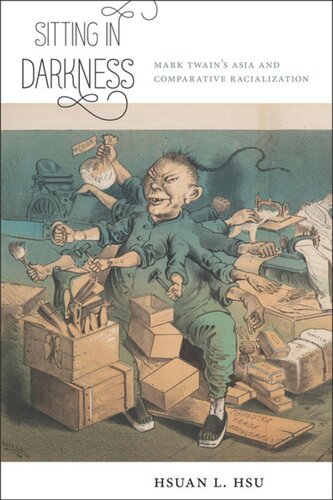

Most ebook files are in PDF format, so you can easily read them using various software such as Foxit Reader or directly on the Google Chrome browser.
Some ebook files are released by publishers in other formats such as .awz, .mobi, .epub, .fb2, etc. You may need to install specific software to read these formats on mobile/PC, such as Calibre.
Please read the tutorial at this link: https://ebookbell.com/faq
We offer FREE conversion to the popular formats you request; however, this may take some time. Therefore, right after payment, please email us, and we will try to provide the service as quickly as possible.
For some exceptional file formats or broken links (if any), please refrain from opening any disputes. Instead, email us first, and we will try to assist within a maximum of 6 hours.
EbookBell Team

4.0
46 reviewsPerhaps the most popular of all canonical
American authors, Mark Twain is famous for creating works that satirize
American formations of race and empire. While many scholars have explored
Twain’s work in African Americanist contexts, his writing on Asia and Asian
Americans remains largely in the shadows. In Sitting in Darkness, Hsuan Hsu
examines Twain’s career-long archive of writings about United States relations
with China and the Philippines. Comparing Twain’s early writings about Chinese
immigrants in California and Nevada with his later fictions of slavery and
anti-imperialist essays, he demonstrates that Twain’s ideas about race were not
limited to white and black, but profoundly comparative as he carefully crafted
assessments of racialization that drew connections between groups, including
African Americans, Chinese immigrants, and a range of colonial populations.
Drawing on recent legal scholarship,
comparative ethnic studies, and transnational and American studies, Sitting in
Darkness engages Twain’s best-known novels such as Tom Sawyer, Huckleberry
Finn, and A Connecticut Yankee in King Arthur’s Court, as well as his
lesser-known Chinese and trans-Pacific inflected writings, such as the
allegorical tale “A Fable of the Yellow Terror” and the yellow face play Ah
Sin. Sitting in Darkness reveals how within intersectional contexts of Chinese
Exclusion and Jim Crow, these writings registered fluctuating connections
between immigration policy, imperialist ventures, and racism.